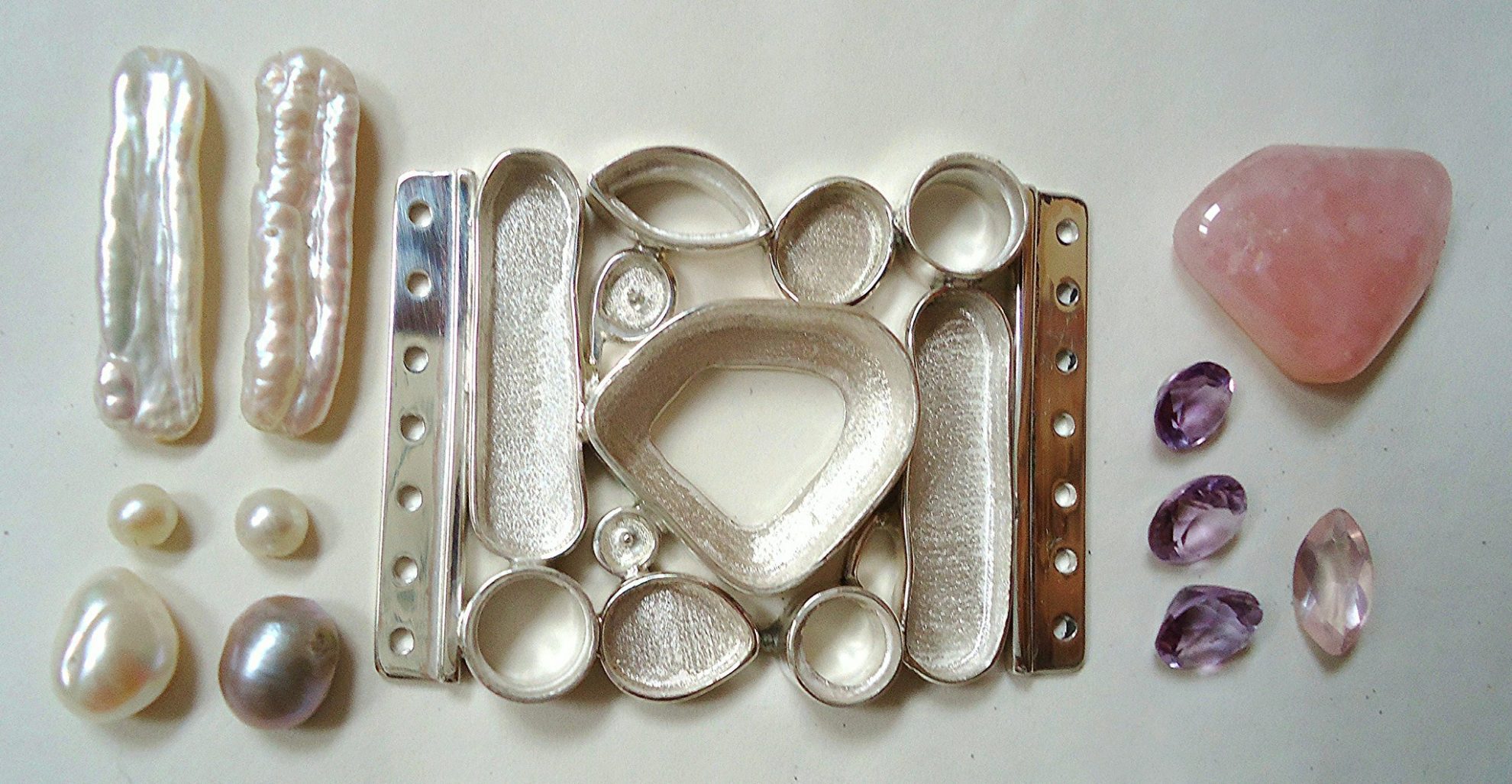Selling Stones to Jewelers
Novice faceters may worry if they’re selling stones to jewelers too cheaply. Learn the best way to approach pricing and selling your gems to your customers.
3 Minute Read
Novice gem faceters frequently ask me this question. My answer is almost always the same: you could be, but you're probably not. You certainly didn't sell the gemstones for less than you thought they were worth at the time.
Here's my two cents on pricing and selling stones to jewelers.
The Better Your Customers Do, The Better You'll Do
What jewelers are making on stones they buy from you isn't really your concern. What you should worry about is what you're making. You need to make good money and be happy with the transaction, regardless of what the jewelers subsequently make. You'll drive yourself nuts (and likely out of business) if you worry about that.
Let's say I sold one of my cut gemstones to a jeweler for $100, which I felt was fair market value. Later, I find out he sold it for $500. More power to him. Most likely, he'll be back to spend that $500 with me.
As long as you price your gems fairly, remember this: when you're selling stones to jewelers, the better they do, the better you'll do.
How the System Works
Be honest. If you buy a rough stone for $10, cut it, and sell it for $200, would you go back to the dealer and say: "Gosh! I made a lot on that stone. Here's your share?"
I doubt it. More likely than not, you'll go back and try to buy the rest of the parcel the stone came from. At least, you should try. It's expected for you to make money (hopefully) on the deal. Rough dealers make money when they sell to you. That's the way the system works.
You simply can't figure out the dealer's or the jeweler's profit with any accuracy. There are too many variables, and you don't have a clue about them. Besides, as a faceter, that's really none of your business. Your business is faceting and then selling stones.
Don't Let Greed Get the Best of You
Raising prices on stones just because you think jewelers made too much money off a previous purchase is a very good way to go out of business. You won't sell any more stones to those jewelers or anybody else they know.
Don't let the greedy grabber get the better of you. Enjoy the fact that you have a customer who wants to pay a fair price for your cut gemstones.
The Long Run
Price your stones so you're happy with the money you're making. If jewelers make what you think is a killing on them, be glad they did. It's possible they didn't make as much as you think. Everybody has expenses to cover that eat away at profits. If you offer fair prices for your stones, you'll make more money in the long run.
Jewelers may buy stones from you that will sit in their cases for so long they may have to name them. (I have a stone named Clyde in my case). When such a stone just sits there, the jeweler's money is tied up.
Would you take back a stone a jeweler bought from you that hasn't sold in six months? Probably not.
(Actually, on a few occasions, I have done that. If the jeweler is a very good customer and the stone is in good shape, I may exchange it for another stone. My customers appreciate it and often trade up and spend a little more).
Selling Stones and Going Rates
You should make money when you sell a faceted stone. If you priced the stone at the going rate or close to it, you did the right thing. If you sold the stone for less than that, that's your fault, not the jeweler's. You set the price.
If you don't know the going rate for a gemstone, you better learn it before you try to sell it.
What if you have an unusual stone, something you can't compare to most commercially available gems? (This happens in custom cutting). In this case, price it so that you can make a fair amount of money for your time and trouble. Keep in mind that unusual, novelty gems have very fickle markets, both for you and the jeweler. Just because it sold well the first time doesn't mean it will again.
Selling Stones to Jewelers: The Bottom Line
If jewelers sell stones they bought from you for a hefty profit, they're more likely to buy from you in the future. Believe me when I say that things usually even out over time. Don't let a little greed or jealously on your part ruin your chances for a long business relationship with a jeweler willing to pay a fair price for your work. Customers like these aren't all that easy to find.
Sooner or later, you'll make a killing with them on something. Just sit back and wait your turn. When it happens, just smile. You earned it.
Jeff R. Graham
The late Jeff Graham was a prolific faceter, creator of many original faceting designs, and the author of several highly-regarded instructional faceting books such as Gram Faceting Designs.
Related Articles
Finding Honest Experts
Robert Casting Platinum
Out Back Mining Company
Tucson Gem Show 2006
Latest Articles
Quartz Toxicity: Understanding the Risks for Jewelers and Wearers
Synthetic Amethyst: What is it and How is it Made?
Hambergite Value, Price, and Jewelry Information
Pearl Simulants: How to Spot Faux Pearls
Never Stop Learning
When you join the IGS community, you get trusted diamond & gemstone information when you need it.
Get Gemology Insights
Get started with the International Gem Society’s free guide to gemstone identification. Join our weekly newsletter & get a free copy of the Gem ID Checklist!
